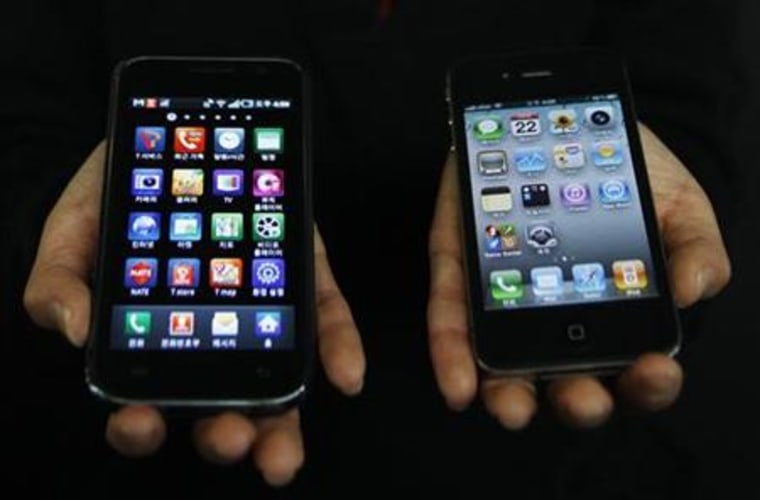During the summer between third and fourth grade, my parents gave me permission to ride my bike anywhere in town, unsupervised. As long as I told someone I was going for a bike ride, I had total freedom to ride to the pool, to the ball field, to my grandmother's house.
I wasn't unusual. Most adults over 35 can tell similar stories about their independent childhoods. We knew our neighbors, and we knew if there was any trouble, we could find an adult to help us.
Today's children don't have that freedom. It's a different world. We don't know our neighbors, and the world seems a bit more dangerous.
[ How Parents Can Curb Teenagers' Risky Online Behavior ]
Trying to straddle the line between allowing children to have some independence while meeting the need to keep a close watch, parents are turning to technology.
Since kids of all ages now carry cellphones, software companies are developing smartphone apps that let parents know where their children are, whom they are talking to and what they are doing.
One of those apps is Nearparent, a Finnish app that creates a virtual "neighborhood" for children on Android and iOS devices. With Nearparent, parents can choose individuals who are approved as helpers if a child has an emergency.
"Nearparent is the modern-day equivalent of the trusted neighborhood where everyone knew each other and kids could rely upon their neighbors' help in everyday situations," said app creator Topi Järvinen.
SecuraTrac, a company based in Hermosa Beach, Calif., has created a similar smartphone app that will allow parents to monitor children via GPS.
The app, to be launched on Aug. 15 for Android and in early September for iOS, will also allow parents to add protections against situations such as texting while driving or speeding. That's an extra layer of security that might let a whole lot of parents rest easier whenever their teens are out of the house.
What if a teenager simply disabled the SecuraTrac app on his smartphone? Chris Holbert, CEO of SecuraTrac, said the app would alert the parents and emergency contacts.
Holbert believes SecuraTrac will not only give parents peace of mind about their children's activities, but will also empower children or teens with the ability to get help from someone they know and trust in an emergency situation.
"All of this can lead to greater independence for the child, given [that] there is a safety net in place," Holbert said.
Being safe, or being overprotective?
But are these monitoring devices really allowing for more youthful freedom — or are they just a high-tech version of helicopter parenting?
"Technology doesn't replace good parenting. But technology, like Internet filtering and monitoring, is a necessity to parent the Internet generation," said Sam Black, an Internet safety consultant for Covenant Eyes, a Michigan-based Christian Web filter company.
Black admitted that monitoring an 8-year-old would not be the same as monitoring a teenager.
"As they [children] mature, they need more flexibility and, yes, room to make mistakes," Black said.
"I think that the bulk of parents are conducting surveillance to protect their children from some type of assault or attack," said Frederick Lane, author of the soon-to-be-published book "CyberTraps for the Young" (NTI Upstream).
However, Lane's feelings about closely monitoring a child's movements were mixed.
"I worry about the idea of inuring children to the concept of surveillance, and making it seem normal," Lane said. "At the same time, I think that it would be irresponsible for parents to not monitor what their children are doing, particularly when they are young.
"My hope is that as children mature, parents would feel comfortable giving their children more freedom and responsibility. The tricky part is that as children get older, the types of trouble they can get into grow increasingly serious," Lane added. "The key to all of this is for parents to communicate with their children enough to understand what they're doing online and to help guide their decisions."
Black explained that monitoring activities can open doors for conversations between parents and children to discuss family rules and behaviors. Children deserve to know why the monitoring is taking place and what the parents' expectations are.
"The point is that parents should avoid 'gotcha' moments and look for teachable moments," Black said. "And those conversations will change as a child moves from elementary school, to middle school, to high school."
And as tempting as it might be for parents to continue monitoring their teenagers as they head off to college, both Black and Lane advise against it.
"Once a child reaches adulthood, a parent needs to let go. As an adult, they have to live with their own actions," Black said.
"For most parents, obviously, the point of surveillance when kids are young is to protect them from external danger or the unintended consequences of their own inexperience," Lane said.
"As kids mature, the goal would be to transform the protective relationship into a partnership, where both parents and children are working together to protect their future from the long-term consequences that can result from online misbehavior."
Ultimately, kids need to be able learn to make good decisions about, for example, where they go, whom they should talk with and so on.
"As parents, we try to give them as much guidance as we can by giving them information and even rules to abide by," Järvinen said. "In that regard, simple monitoring of kids' locations is not very useful and it does not really make the kids life safer or help them to learn to be more trustworthy."
What the phone apps and other monitoring devices do is allow the child to learn to be independent while still having the support network of trusted family and friends. Parents can rest easier knowing that help is around the corner, even if they are not around.
